Daily Life | Perspectives for the Pandemic
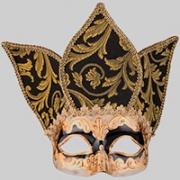
THE MEANINGS OF MASKS
Venetian Masks | Jeffrey S. Ravel
Masks for Carnival — and for finessing an archaic political order: "By the eighteenth-century in Venice, people had grown accustomed to wearing masks in public perpetually, not for health reasons but for social and cultural ones. Furthermore, the Venetian state actually required its citizens and visitors to the Republic to don masks in many public spaces."

THE MEANINGS OF MASKS
Persona: Masks in the Graeco-Roman World | Stephanie Ann Frampton
"In Latin, one of the words for mask is persona, thought to have meant 'something through which sound passes' (per- 'through,” sono 'to make a sound')... Even in the time of Cicero, persona was already being used to describe the 'part' or 'character that one sustains in the world' — in other words, the role or roles we play in society."

THE MEANING OF MASKS
The Masks of Empire, Art, Politics, and War | Catherine Clark
"Ultimately, history reminds us that masks can produce meaning whether they sit on our faces or our kitchen tables."
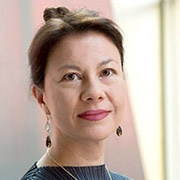
THE MEANINGS OF MASKS
The Mask as Public Spiritedness - 公德心
Emma Teng | History
"Norms in East Asian countries support the notion that 'doing something for the community good is good for me also.' It would be unthinkable to discuss sacrificing older people to the pandemic using a cost-benefit analysis. It is also considered a social responsibility to do one’s part in controlling the pandemic to ensure that schools remain open for the younger generation."
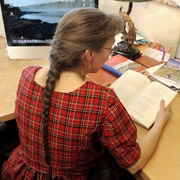
EDUCATION + DAILY LIFE
Faculty Reflections | Anne McCants, Professor of History
An ongoing series of notes from the Director of the MIT Concourse Program for her students and others during the pandemic
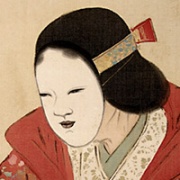
THE MEANINGS OF MASKS
The expressive power of masks | Sara Brown
MIT professor and theater designer on masks as archetypes, protection, the performance of self, and care for others

THE MEANINGS OF MASKS
The mask is a badge of honor | Eric Klopfer
Comparative Media Studies
"In this pandemic era, what a mask really says is, ‘I care about YOU.’ The mask indicates that you are protecting the health of others during a crisis."
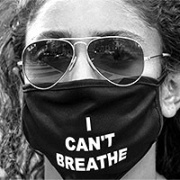
THE MEANINGS OF MASKS
A collective cry for justice | Graham M. Jones
Anthropology
"The mask is one of the most important human artifacts in all of anthropology. It is a tool of transformation that allows its wearers to transcend themselves, taking on timeless roles in ritual dramas, and as actors in a broader social drama."
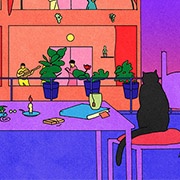
DAILY LIFE
An ode to the humble balcony
In The New York Times, Bernardo Zacka writes: "[A balcony] is private, yet public; exposed, yet secluded. It offers company without the demands of intimacy, and we should never take it for granted again."

DAILY LIFE
Taking refuge in the kitchen
Heather Paxson talks with the Radcliffe Institute on how the pandemic is changing the ways we eat.

DAILY LIFE
A Conversation: Alan Lightman and Oprah Winfrey
In this conversation, part of Winfrey's 2020 Vision Tour, Oprah talks with MIT physicist and writer Alan Lightman about the presence, authenticity, and meanings of spiritual experience.
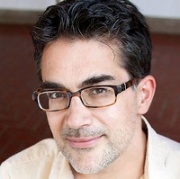
DAILY LIFE
What the pandemic tells us about personal identity
Kieran Setiya writes in The New Statesman: "We have become more used to seeing others through screens and software, but we are embodied beings and digital communication can feel lacking. What effect will this have on us?"
HUMOR AND HEALTH
Why we need humor at a time like this
At Oxford University Press blog, William Costanzo explores the social and medicinal aspects of humor.

DAILY LIFE
The truth about Isaac Newton’s productive plague
In The New Yorker, MIT Professor of Science Writing Tom Levenson writes that the idea that the plague woke the brilliance in Newton is both wrong and misleading.

DAILY LIFE | EDUCATION
When the coronavirus pandemic drove life online
On NBC News, MIT Professor Sherry Turkle discusses how the pandemic is inspiring people and groups around the world to use the internet in new and creative ways to connect: "The move online could end up changing what it means to be online," she says.
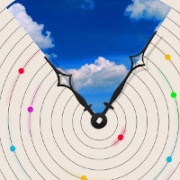
DAILY LIFE
The virus is a reminder of something lost long ago
In The Atlantic, MIT Professor of Writing Alan Lightman observes that the pandemic may force "many of us to slow down, to spend more time in reflection, away from the noise and heave of the world. With more quiet time, we have an opportunity to think about who we are, as individuals and as a society."

DAILY LIFE
Embracing Humor
"Many studies have shown that laughter and humor have a huge array of benefits, including strengthening the immune system, reducing pain and stress, and increasing energy. If you are going through a difficult experience or feeling down, humor may accidently find you. Embrace it."